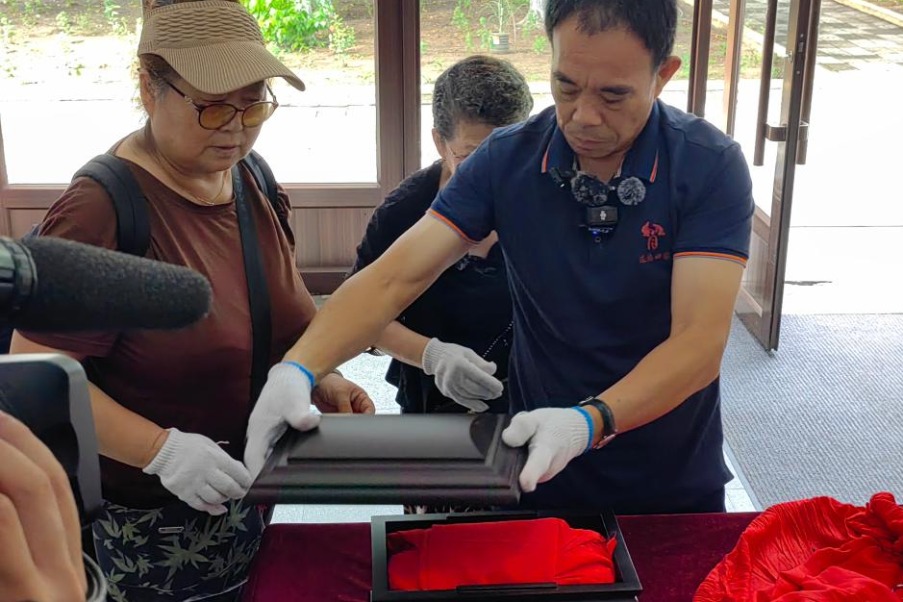Mini-gyms spring up to offer quick and convenient access to exercise


A host of shared self-service mini-gymnasiums, each covering about 5 square meters, have sprung up in China's major cities, including Beijing.
Each features a mini exercise booth-which resembles a phone kiosk-a treadmill, air conditioner and purifier, and a high-definition screen to play games, listen to music or watch TV dramas.
With the basic fitness equipment needed to work out in a regular gymnasium, these mini premises can be booked and sessions paid for through smartphone apps.
In June last year, Beijing fitness startup Misspao rolled out shared mini-gyms in communities in nine cities nationwide. They were: Shenzhen, Guangdong province; Nanjing, Jiangsu province; Hangzhou, Zhejiang province; Qingdao, Shandong province, Xi'an, Shaanxi province; Chengdu, Sichuan province; and Beijing, Shanghai and Tianjin.
After paying a deposit, users can book the nearest gym and scan the access code with their smartphones. For about 6 yuan ($0.9) for half an hour, they can also rent mini-gyms in nearby neighborhoods for exercise and bodybuilding.
Bi Zhen, CEO of Misspao, cited a recent survey conducted by the company that found that about 95 percent of respondents said they needed exercise, but only 10 percent had gym membership.
"Under a heavy workload, many people lack the time to work out frequently. And that's exactly what we can offer. Even busy white-collar workers can enjoy the convenience brought by these mini fitness booths in nearby residential communities," Bi said.
The company said each one costs from 15,000 to 20,000 yuan. Based on the average total usage time of six hours a day, they can yield high rates of return and break even in eight to 10 months.
Bi aims to build a smart sports community that allows people to choose mini-gyms that are about five minutes' walk away, instead of heading to distant fitness centers.
The mini-gyms are equipped with aerobic machines, such as exercise bikes. Misspao will also roll out a wide range of training classes to target users' specific needs for fitness and bodybuilding.
Zhu Xiaoxiao, CEO of the app FitTime, said, "It's really a huge market. Driven by the desire for smaller waistlines and healthier lifestyles, more people, especially the health-conscious younger generation, are willing to spend time and money on fitness and slimming services."
Statistics from the China Internet Network Information Center show that of the 802 million netizens in China, 98.3 percent are mobile phone users, which provides a huge base for the blossoming online sports and fitness industry.
Government policy is also fueling the smart sports sector. According to a national fitness plan, spending on sports and fitness is expected to reach 1.5 trillion yuan in 2020.
- Yellow River maintains good water quality for 3 consecutive years
- Chinese team designs tiny robot sensor for tasks inside bodies
- Chinese researchers develop movable electrode for more advanced brain-computer interfaces
- China launches construction of high-precision telescope project on 'roof of the world'
- South China city reports over 1,700 Chikungunya cases
- Xinjiang starts building new expressway linking north and south




































